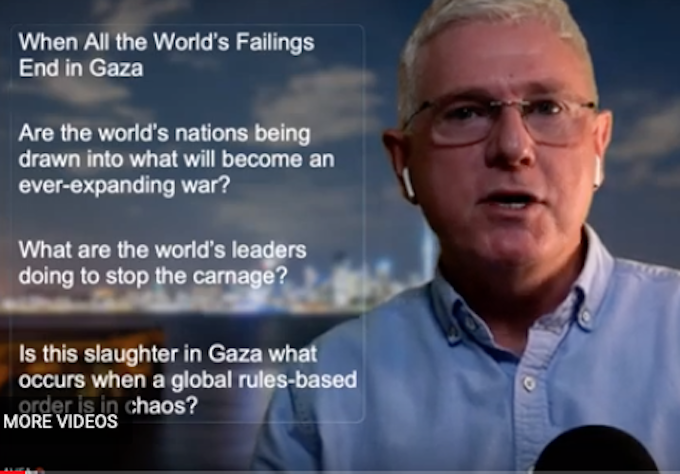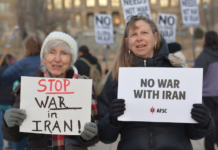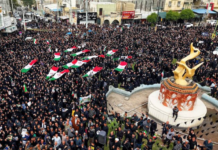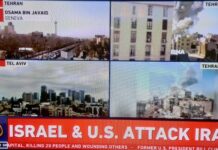
By Selwyn Manning, editor of Evening Report
As we prepared for this podcast, representatives of Arab states have presented a united front at the United Nations, criticising the UN Security Council of doing nothing to protect civilians from Israeli bombing and missile attacks on Gazan civilians and locations.
Since then, the UN Security Council has considered two resolutions, the latter calling for a pause in hostilities to allow a humanitarian effort to enter Gaza to assist civilians.
The United States vetoed that Security Council resolution.
- READ MORE: Regional tensions threaten to spill over, Israel continues attack on Gaza
- Other War on Gaza reports
Al Jazeera has detailed that Israel forces have targeted and bombed civilian facilities include hospitals, schools, residential areas resulting in the deaths of thousands of people, civilians – around one-third of the deaths are children.
It remains contested by all sides in this conflict as to who, or what, is responsible for the deadly attack on Gaza Hospital, resulting in the deaths of at least 471 people.
Additional to this, Israel has sealed the borders of Gaza while it prevents food, water and medical supplies from reaching civilians — in breach of international law requirements and laws of conflict.
Israel ordered Gazan civilians, who wish to get to safety, to get out of North Gaza and move toward the south, to the border with Egypt.
Heavy bombing, sealed border
But as people fled south toward what appeared to be safety, Israel bombed the southern Gaza region killing more civilians and sealing off that corridor for others who sought refuge.
As a consequence of the bombing, Egypt responded by sealing the Gaza-Egypt border.
Humanitarian aid now sits on trucks, waiting, on the Egypt side of the border, while United Nations officials implore Israel and Egypt to allow medical supplies, food and water to get through to those who are injured and dying.
The Israel Defence Force strikes followed a surprise-attack on Israeli citizens by soldiers operating under the Hamas banner.
Civilians were slaughtered and others taken hostage, only to be used as bargaining chips and leverage against their enemies.
Even Palestinian advocacy groups like the Palestine Solidarity Network Aotearoa suggested that breaches of international humanitarian Law, crimes against civilians, have been committed by those Hamas-aligned fighters.
But they are clear, as others are too, that crimes against humanity, war crimes, have been committed by Israel, without consequence, as we all give witness to its response which is disproportionate, brutal, and disregarding of the thousands of Palestinian lives that have already been taken.
The View From Afar podcast on Gaza.
Getting worse
That is the grave current situation and it is likely to get much worse.
In this episode, Selwyn Manning and global security and geopolitics analyst Dr Paul Buchanan discuss the crisis yesterday:
- What are the world’s leaders doing to stop the carnage?
- Are the world’s nations being drawn into what will be an ever-expanding war?
- Are we witnessing the beginning of a war where on one side authoritarian-led states like Russia, Iran, the wider Arab states, and possibly China stand unified against the United States, Britain, Germany, and other so-called liberal democratic allies representing the old world order?
- Is what we are witnessing, what happens when a global rules-based order, multilateralism and institutions like the United Nations no longer have influence to prevent war, or restore peace and stability, or assert principles of international justice and enforce the rights of victims to see recourse to the law?
- Why has this slaughter become an opportunity for the US and Russia to square-off against each other at the UN Security Council — a body that was once designed to advocate and achieve peace, but has now become a geopolitically divided entity of stalemate and mediocrity?
- Eventually, will humanitarianism prevail? Will the world recognise that all people, the elderly, women, children, people of all ethnicities and religions, that they all bleed and die irrespective of their state of origin, when leaders of all sides, while sitting back in their bunkers, unleash weapons designed to kill as many people as is possible?















































